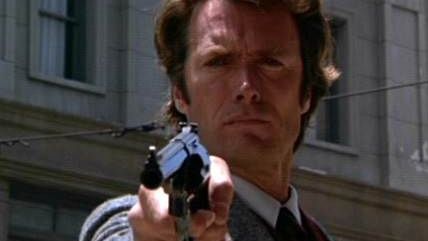Colorado "Make My Day" Law Protects Man Who Defended Himself Against Cops


Earlier this year in Cortez, Colorado, Shane French's mother called 911 on him, complaining he was being "verbally abusive" toward her. Cops showed up and verbally and physically abused French, according to the man, who says he decided to fight back against the cops. Police accused him of stabbing one of the officers, who was holding French in a "bear hug," and arrested him on charges of assaulting a police officer and resisting arrest.
French's public defender won him an acquittal, successfully arguing French was protected under Colorado's "Make My Day" law, but not before French spent 297 days in jail. Colorado was one of the first states to pass a "Make My Day" law, which protects homeowners who use deadly force to repel intruders, back in 1985.
The prosecutor in the case continues to defend the actions of officers, and may blame recent national attention to other cases of police brutality for the jury's decision. Or it may just be the Associated Press, which reports:
[Jurors] may have been influenced by recent decisions not to prosecute police officers in Ferguson, Missouri, and New York City in the deaths of two unarmed black men, District Attorney Will Furse told The Associated Press. In the Cortez case, both French and Eubanks are white, but the police shootings have spurred a national conversation about use of excessive force by police.
Furse said it's impossible to look at the case in a vacuum.
"Cases like this are certainly great ones to take to trial because the community can get involved in determining the appropriateness of the response," said Furse, adding that he stands by the officers' actions. "The jury just was not satisfied we demonstrated that the police acted reasonably."
French, of course, was not the first person to shake off charges stemming from using force to repel cops. Before Ferguson brought the issue of police violence to the attention of the national media, a grand jury in Texas declined to indict a marijuana grower who shot and killed a sheriff's deputy during an early morning search warrant execution. In 2012, Indiana closed an odious loophole that would prevent residents from defending themselves from cops in their own home, no matter what the cop was doing, up to and including capital offenses.
Only the jurors in Cortez know why they made the decision they did. More jurors aware of the decisions they can make and more legal protections for individuals defending themselves from aggressive cops is certainly one component of reducing incidences of excessive police violence.
h/t Stanton Smith
Show Comments (15)